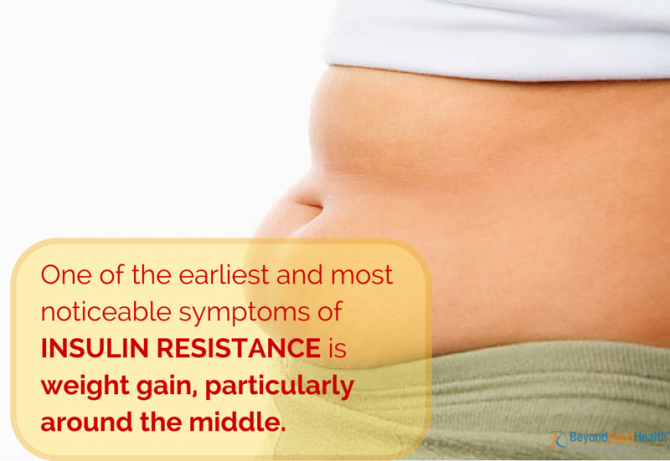
Insulin resistance creates increased levels of insulin and glucose in the blood stream, which is a major underlying cause of excess weight and obesity and their links to several other major disorders.
Combating these conditions is crucial for heart disease prevention because rnsulin resistance, excess weight and obesity may increase the risk of developing metabolic syndrome (syndrome x). This latter ailment can damage the cardiovascular system, specifically the lining of the arteries, as well as creating a greater risk of blood clot formation. The kidneys' ability to remove salt is also affected. All of these factors raise the likelihood of developing Cardiovascular Disease (CVD) leading to a heart attack or stroke.
A study published in the Journal of the American Medical Association in December 2002 found that men with metabolic syndrome were associated with a 2.6 - 3.0 times higher CVD mortality rate and a 1.9 - 2.1 higher all-cause mortality rate (1).
This breakthrough in understanding the body's biochemistry remains relatively unknown, even though insulin resistance has reached epidemic proportions. Your doctor may not have explained the crucial link between insulin resistance, excess weight, obesity and metabolic syndrome. You need to understand this link in order to help reverse the symptoms of your condition.
The Insulite System for Excess Weight and Obesity is the first scientifically-designed program that restores your body's ability to overcome metabolic syndrome by reversing insulin resistance.
As an underlying cause of Pre-diabetes, insulin resistance-linked excess weight and obesity has many factors that contribute to its presence in the body. In essence, our environment and lifestyles have evolved too rapidly for our bodies to keep pace. We are still genetically "wired" to thrive on the entrenched habits of our ancestors, who consumed different, nutrient-rich foods, a diet low in carbohydrates and sustained greater levels of movement and exercise. Some people may also have a genetic predisposition to insulin resistance, while others develop the condition through high stress and unhealthy lifestyles.
Over time, the above factors have damaged the complex ability of the body's cells to properly utilize insulin to convert glucose to energy. This process creates insulin resistance, which can lead to pre-diabetes in two distinct ways.
Firstly, insulin resistance greatly reduces the sensitivity of your cell walls to insulin. So the vital process whereby glucose passes through the cell wall via insulin to be converted into energy is greatly impaired. As a result, excess glucose remains in the blood stream, causing elevated levels of blood sugar, which are sent to the liver. Once there, the sugar is converted into fat and carried via the blood stream throughout the body. This process can lead to weight gain and obesity.
Secondly, insulin resistance-linked excess weight and obesity underlie Pre-Diabetes by raising insulin levels in the blood stream. Unhealthy lifestyles and genetic conditions cause the pancreas to overproduce insulin. The cell, in turn, is overwhelmed by this surplus insulin and protects itself by reducing the number of its insulin receptor sites.
This process leaves too few sites for insulin to carry out its normal function, which is to attach itself to the cell wall and act as a "key in a lock" to
allow glucose to pass through the cell wall and be converted into energy. The vastly reduced number of receptor sites in insulin resistant people causes an excess of insulin "rejected" by the cell to float freely in the blood stream, which can damage the cardiovascular system.
Pre-diabetes can be reversed. But if neglected, it can lead to the onset of irreversible Type 2 diabetes, which may require daily insulin injections for the remainder of your life. Type 2 diabetes significantly increases one's risk for blindness, amputation and life-threatening kidney disease, as well as a heart attack and stroke.
Insulin resistance, excess weight, obesity and PCOS (polycystic ovarian syndrome)
PCOS is a major cause of infertility in women and is closely linked to insulin resistance-related excess weight and obesity. This condition is also known as polycystic ovaries, sclerocystic ovarian disease, stein-leventhal syndrome, chronic anovulatory syndrome and polycystic ovarian disease (PCOD).
It is the most common female endocrine (hormonal) disorder and is characterized, in some cases, by multiple abnormal ovarian cysts. Most ovarian cysts are harmless, fluid-filled sacs containing immature eggs that attach to the ovaries. But multiple cysts, with a typical appearance of a "string of pearls" or "pearl necklace," are a hallmark of PCOS. An estimated 5-10% of women of childbearing age are affected by PCOS, which can prevent ovulation, making pregnancy impossible. Post-menopausal women can also suffer from PCOS.
This reversible condition can be a silent killer. Since the symptoms of PCOS often vary so widely from woman to woman, doctors sometimes misdiagnose the condition. This oversight became a matter of critical concern after a study conducted in 2000 found that women suffering from PCOS have a higher risk of coronary heart disease (2).
Symptoms of PCOS can include excessive weight gain and obesity, irregular, heavy or completely absent periods, ovarian cysts, an overabundance of facial or body hair, Alopecia (male pattern hair loss), acne, skin tags (growths from the skin), Acanthosis Nigricans (brown skin patches) high cholesterol levels, exhaustion or lack of mental alertness, depression, decreased sex drive and excess male hormones.
There is no single pill that reverses insulin resistance, which clearly needs to be controlled and reduced in the case of many people suffering attendant disorders like excess weight gain and obesity, metabolic syndrome, pre-diabetes and PCOS.
What is required is a complete system, including nutraceuticals (vitamins, herbs and minerals that are disease-specific), a realistic exercise program, nutritional guidance and a support network that will help you change unhealthy lifestyle choices.
The Insulite System for Excess Weight and Obesity is scientifically-designed to reverse insulin resistance by restoring the balance of circulating blood sugar and insulin levels - crucial factors in first stabilizing weight and then reducing it to a healthy level. Key components of the Insulite System include advice on a balanced, nutritious diet and regular exercise.
You may be interested in some Frequently Asked Questions (FAQs) about the Insulite System for Weight Gain and Obesity. * Why does the Insulite System recommend a regular exercise program?
* How soon will I lose weight on the Insulite Excess Weight and Obesity System?
* Why do you recommend gradual weight loss?
Watch Video




